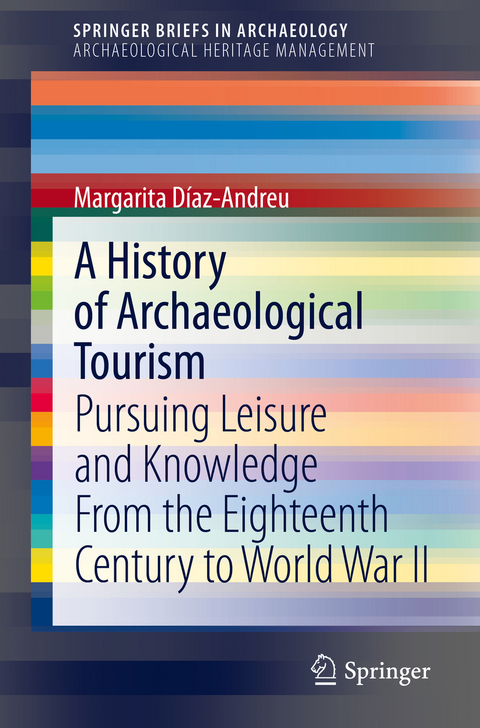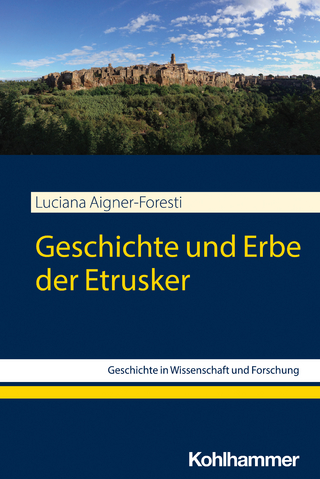
A History of Archaeological Tourism
Springer International Publishing (Verlag)
978-3-030-32075-1 (ISBN)
Margarita Díaz-Andreu is an ICREA Research Professor based at the University of Barcelona (UB). She is the PI of the Group of Public Archaeology and Heritage (www.gapp.cat) at her university and has led several projects as PI such as the Spanish team of the EU-funded project 'Heritage Values Network' project. Her areas of research are the history of archaeological heritage, archaeological tourism, migration and the politics of heritage. She is interested in public archaeology and community heritage from different perspectives: cultural tourism, world heritage, citizen participation, immigration and the conservation of cultural goods. She and her team are currently prioritizing projects related to heritage from a social perspective, addressing the problems of today's society. Her research group has as one of its priorities the development of new methodologies in social heritage, including some in-depth research on focus groups. She is also encouraging participative projects that give voice to society and serve as a bridge between society, academia and the institutions dealing with the management of archaeological heritage. The author of A World History of Nineteenth-Century Archaeology (OUP, 2007), her first thoughts on the history of archaeological tourism were written in 2004. Since then she has published a special issue on archaeological tourism in the International Journal of Historical Archaeology (2013) and several articles on this topic.
1. Introduction.- 2. The fascination for the past in early modern Europe and the colonized world.- 3. Promoting the national past -archaeology and tourism in the 19th and early 20th centuries.- 4. Ivory towers in a world of leisure: tourism and archaeology from 1920 to 1970.- 5. Mass tourism and archaeology.- 6. Conclusions.
"Sometimes we do not realise how much we need a book, until we read it. This was certainly the case for this reviewer when reading Margarita Díaz-Andreu's History of Archaeological Tourism. Before reading it, I had not imagined such a book was possible, let alone necessary. By the time I was half-way through, I wondered how we had managed without it till now." (Trabajos de Prehistoria, Vol. 77 (2), 2020)
"It is a wide-ranging investigation into archaeology, travel, tourism, and leisure. It is well-researched and useful for a number of audiences. ... A History of Archaeological Tourism is interesting to read, for scholars in tourism studies and the history of archaeology." (Kathleen Sheppard, Histories of Archaeology Research Network, September 3, 2020)
| Erscheinungsdatum | 26.02.2020 |
|---|---|
| Reihe/Serie | SpringerBriefs in Archaeological Heritage Management | SpringerBriefs in Archaeology |
| Zusatzinfo | IX, 122 p. 28 illus., 13 illus. in color. |
| Verlagsort | Cham |
| Sprache | englisch |
| Maße | 155 x 235 mm |
| Gewicht | 215 g |
| Themenwelt | Geisteswissenschaften ► Archäologie |
| Geschichte ► Allgemeine Geschichte ► Altertum / Antike | |
| Geisteswissenschaften ► Geschichte ► Hilfswissenschaften | |
| Geschichte ► Teilgebiete der Geschichte ► Kulturgeschichte | |
| Sozialwissenschaften | |
| Schlagworte | Archaeological tourism versus archaeology as a dis • Archaeological tourism versus archaeology as a discipline • Emergence of cultural and archaeological tourism • Grand Tour of the 17th and the 18th centuries • Materiality of engagement between archaeology and • Materiality of engagement between archaeology and tourism • National commissions in antiquities and cultural t • National commissions in antiquities and cultural tourism • Political relationship between archaeology and nat • Political relationship between archaeology and nationalism |
| ISBN-10 | 3-030-32075-8 / 3030320758 |
| ISBN-13 | 978-3-030-32075-1 / 9783030320751 |
| Zustand | Neuware |
| Informationen gemäß Produktsicherheitsverordnung (GPSR) | |
| Haben Sie eine Frage zum Produkt? |
aus dem Bereich


